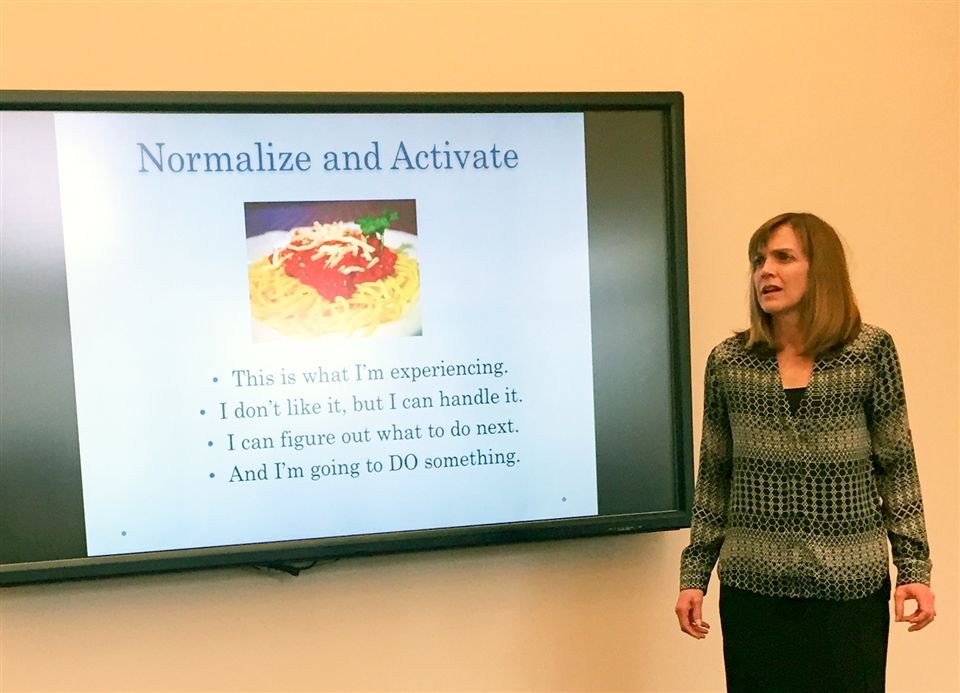This piece of wisdom is one that resilience experts and psychologists offer as guidance for parents and educators. On Friday, February 16, during our Professional Day, DCD faculty and staff spent the morning with anxiety expert Lynn Lyons. Her three-hour workshop deepened our understanding about why it is so critical for children to engage in the messy, non-linear, and sometimes challenging process of learning how to navigate “the path” rather than having it cleared for them.
Lynn Lyons, who has addressed the dramatic rise in diagnosed anxiety and depression in children in both her research and clinical work, sees a link between our well-intentioned desire to protect children and an increase in anxiety. Lynn made it clear during her talk that she does not want to go back to the days of “Suck it Up, Buttercup” or throwing kids into the deep end of the pool. Instead, she advocates teaching children to recognize the physical symptoms of worry, tolerate the discomfort it brings, and understand that some anxiety is a normal part of challenge and growth. To help children practice these skills, she says we must not focus too much on preparing the path for the child, but rather preparing the child for the path.
Instead of having parents and teachers engage in discussions about the content of what worries children and teens, fear of dogs or public speaking, for example, she suggests we help kids manage the process of worry. She explained that helping children to avoid the source of their worry does not help them deal with anxiety. Neither does trying to repress the worry, which just makes it stronger. When we try to help kids avoid the worry itself through lengthy conversations about “what’s the worst that could happen” or when we try to come up with solutions that address their fears, the worry is elevated, legitimized, and given power over a child.
Taking a different approach, she modeled for us how to help children externalize their worry, metaphorically (or literally, with younger kids) “greet” it when it shows up, recognize that worry is telling them they can’t do something – or can’t do it well – and reject the power it has over their thoughts. So, instead of having conversations that address specific worries and thereby encouraging children to strive for certainty and control, Lynn showed us what we as teachers and parents can do to help children develop the skills they need to manage uncertainty of all types.
We all found Lynn’s talk to be informative and helpful in our work empowering children and building their capacity to manage an uncertain world. We hope to bring Lynn back to DCD for a parent event. Please stay tuned for details to come.
If you’d like to learn more about Lynn and her work, click here: http://www.lynnlyonsnh.com





